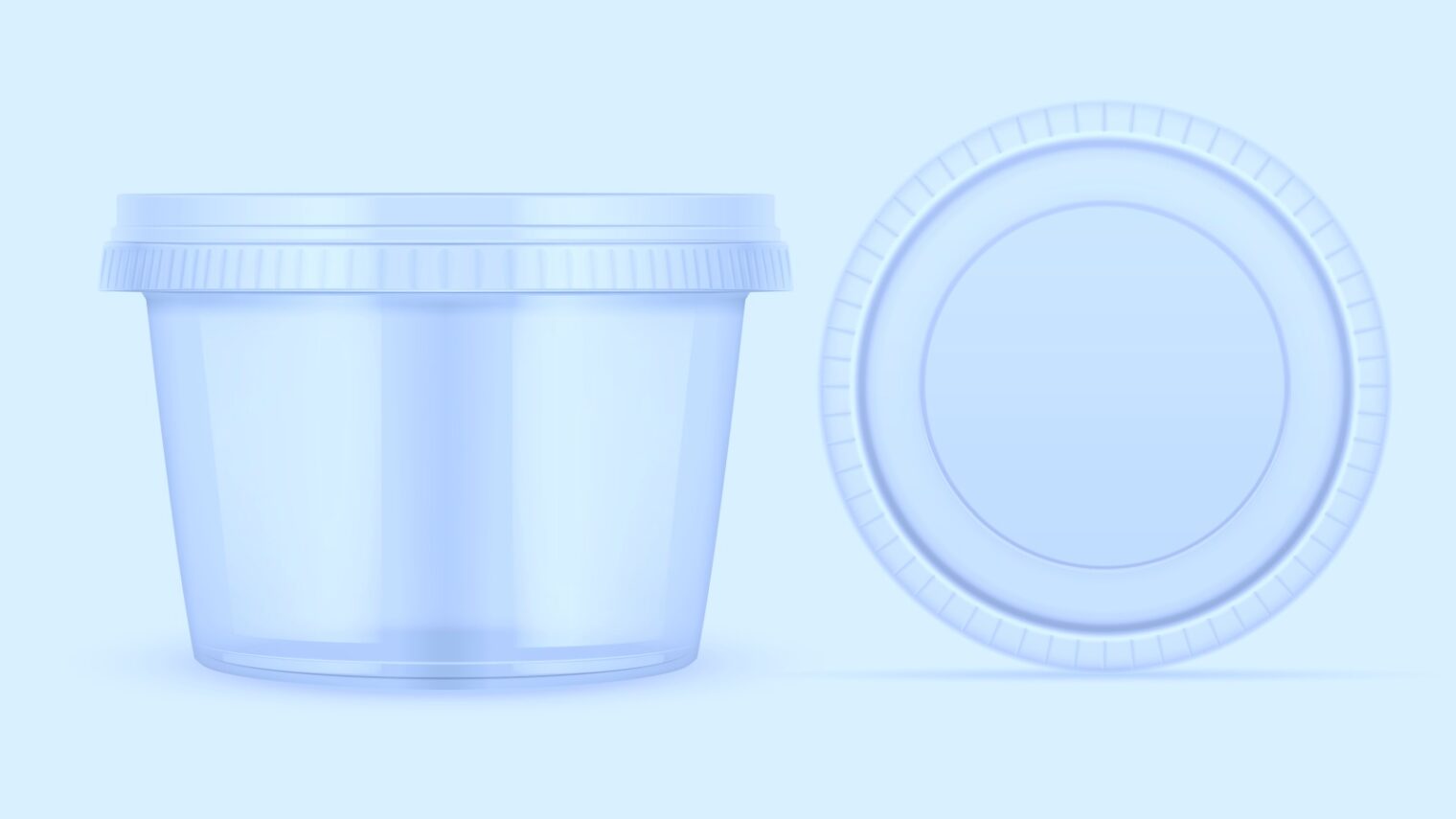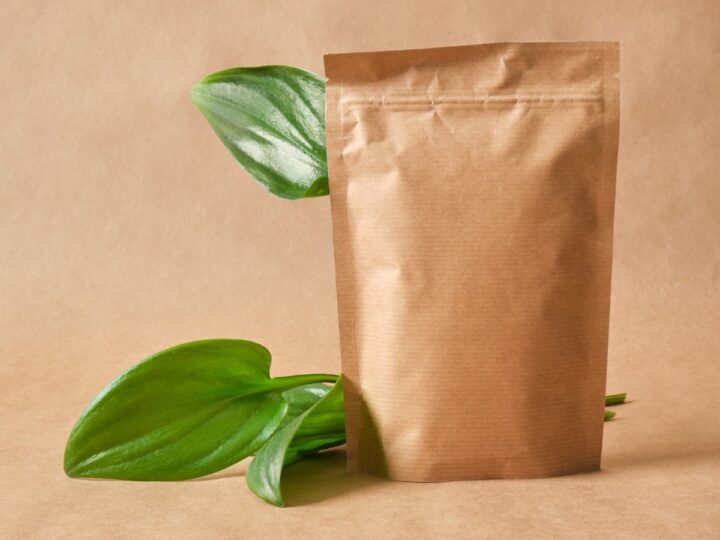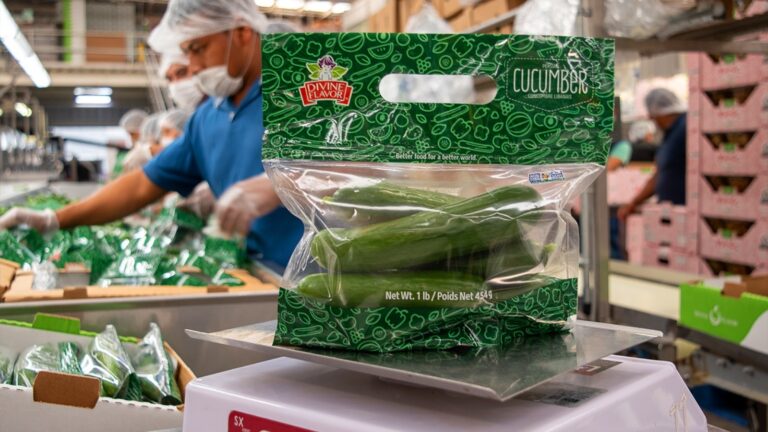If you thought fungi like mushrooms were just for eating or getting high, here’s another use for those versatile organisms: creating sustainable biomaterials that could replace fossil fuels as the basis for plastic packaging.
MadeRight, an Israeli startup founded by Yotam David and Rotem Cahanovitc in 2022, grows fungi on industrial organic waste, converting “useless” difficult-to-treat waste streams into valuable raw materials.
MadeRight’s material can be integrated into existing supply chains and packaging machinery, meaning manufacturers won’t have to make substantial changes in their workflow.
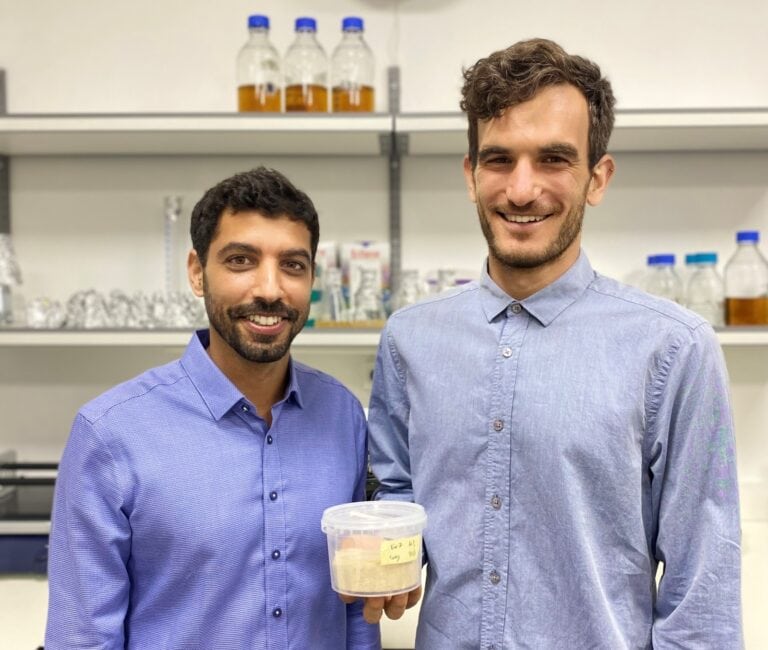
There’s no question that something needs to be done to reduce plastic packaging and make it more sustainable.
Over the past two decades, the amount of plastic waste has doubled. Some 400 million tons of plastic packaging is created every year, representing 40% of all plastic produced worldwide. Most of it gets discarded within minutes of use.
The amount of plastic waste produced globally is expected to nearly triple by 2060, with less than a fifth of it recycled.
Shelf life vs. environment
Plastic packaging is difficult to recycle or compost, especially when chemical additives are mixed in to prolong shelf life of the contents.
Coffee, for example, is very sensitive to oxygen and light, so its packaging has added chemicals to block those out.
These additives – in addition to being fossil fuel-based themselves – cannot be washed away and not only make recycling difficult, but they are also implicated in serious health issues.
Cahanovitc, the company’s CEO, explains that this “creates a tradeoff between extending shelf life and promoting environmentally friendly end-of-life options such as mechanical recycling or home composting.”
It’s these additives that MadeRight is replacing with its fermented material meant to make plastic packaging healthier and recyclable as well as shelf-life extending.
“We grow fungi on top of industrial organic waste – food, agriculture, wood chips,” says Cahanovitc. “The fungi eat it up, creating biomass. We then extract different materials, and fuse those together with fossil plastics to replace the functional plastic additives.”
MadeRight is tapping into a large market: $363 billion for food packaging globally, projected to grow to $512 billion by 2028, according to Statista.
Fungus fanatics
Cahanovitc came up with the idea for MadeRight after volunteering in Ethiopia between earning his academic degrees.
“One hundred and twenty million people live in Ethiopia,” he tells ISRAEL21c, “yet there’s no waste infrastructure there at all. With no one to take the waste away, it’s burned everywhere. I have a harsh image in my mind of kids playing in a soccer field with piles of plastic burning around them.”
This made Cahanovitc think about how to make plastics recyclable.
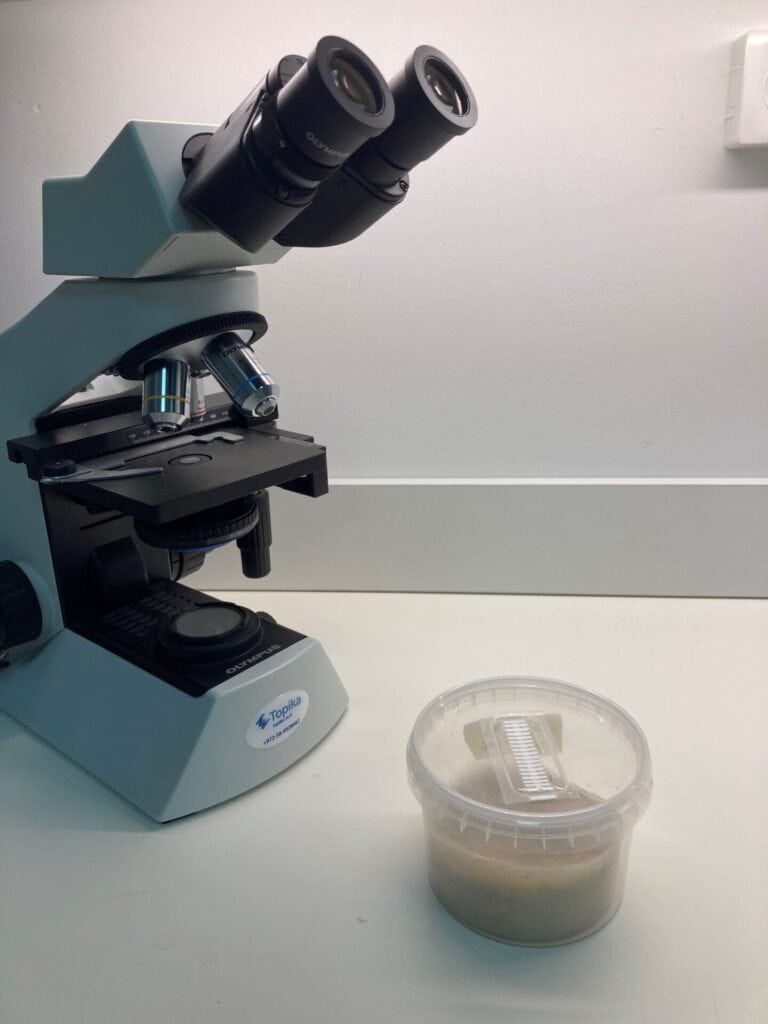
Cahanovitc majored in mycology – the study of fungi – at the Weizmann Institute of Science. His partner, David, focused on the molecular genetics and synthetic biology of fungi.
“Both of us are absolutely obsessed with these organisms,” Cahanovitc tells ISRAEL21c.
Usually MadeRight operates out of the Fresh Start food-tech incubator in Kiryat Shmona, launched by the Israel Innovation Authority with backing from Israeli conglomerates Tnuva and Tempo, as well as crowdfunding firm OurCrowd.
When Hamas launched an attack on Israel on October 7, and Hezbollah began firing missiles at the north of Israel in support, the company was forced to evacuate hastily from its northern home.
Within just one week, however, the company was back in business and had already resumed operations in a new lab in a secure location.
Cahanovitc admits it has not been easy. “I personally know three people who have been murdered and kidnapped,” he explains. “It is devastating and heart shattering. But like everything in life, where there is deep darkness, there is opportunity for light. We are rebuilding our shattered hearts, company and nation stronger and better. There is no other way.
“Israelis a nation that grew out of harsh reality – people here are tough,” he adds. “We are determined never to cease our efforts for a brighter future and we persist in delivering, regardless of the circumstances, and will maintain business continuity.”
“The great potential of MadeRight’s solution is to close gaps that hold us back from making the required transition to non-polluting and sustainable packaging materials while maintaining sustainable production processes themselves, and leveraging the wonderful natural qualities fungi have to offer,” said Noga Sela Shalev, CEO of Fresh Start.
The startup has raised $2 million and has won the Unilever Sustainable Challenge Award, MassChallenge 2022 and the 2023 Disrupting The Future Of Plastics competition.
Plastics aren’t all bad
Isn’t the goal for the post-fossil fuel age the elimination of plastic use?
No, Cahanovitc, says, because plastics aren’t all bad.
“If you run a lifecycle analysis comparing the amount of energy you need to create plastics compared with glass or paper, plastics are actually greener. They use a very low quantity of energy to reach functionality.”
Imagine a glass jar of tomato sauce. “Around two-thirds of the product weight is just the glass holding the content. Then you need to transport it. Only if you reuse that same bottle three to four times will it be greener than using a plastic container,” Cahanovitc notes.
The same is true with paper which needs “a huge amount of chemicals, energy and water to create steam. We like to think of plastic as the bad guys. But plastic is actually very good at what it does. The ideal would be to create plastics from renewables.”
Cahanovitc notes that New York-based startup Evocative makes whole packaging from mycelium (fungi)-based materials as a replacement for Styrofoam. “They don’t replace additives like we do. And they’re not for the food or cosmetics industries.”
These are the two industries MadeRight is targeting first. Its initial go-to market is Europe, where Cahanovitc is aiming for commercialization by the end of 2024.
“We want our manufacturing to be local, located next to where the packaging will be created,” Cahanovitc says.
“This is one of the strengths of fungi – you can grow them anywhere in the world. They develop extremely fast, they don’t have seasons, and you have organic waste everywhere.” This also minimizes the need to transport raw materials, thus reducing carbon emissions.
“The majority of wars are fought over resources,” Cahanovitc adds. “When individuals feel secure, they are generally unwilling to sacrifice their lives. MadeRight, alongside other climate-tech companies, will supply ample materials and resources worldwide.
Our endeavor is directed at reducing future conflicts and fostering a safer global reality.”
Click here for more information.




